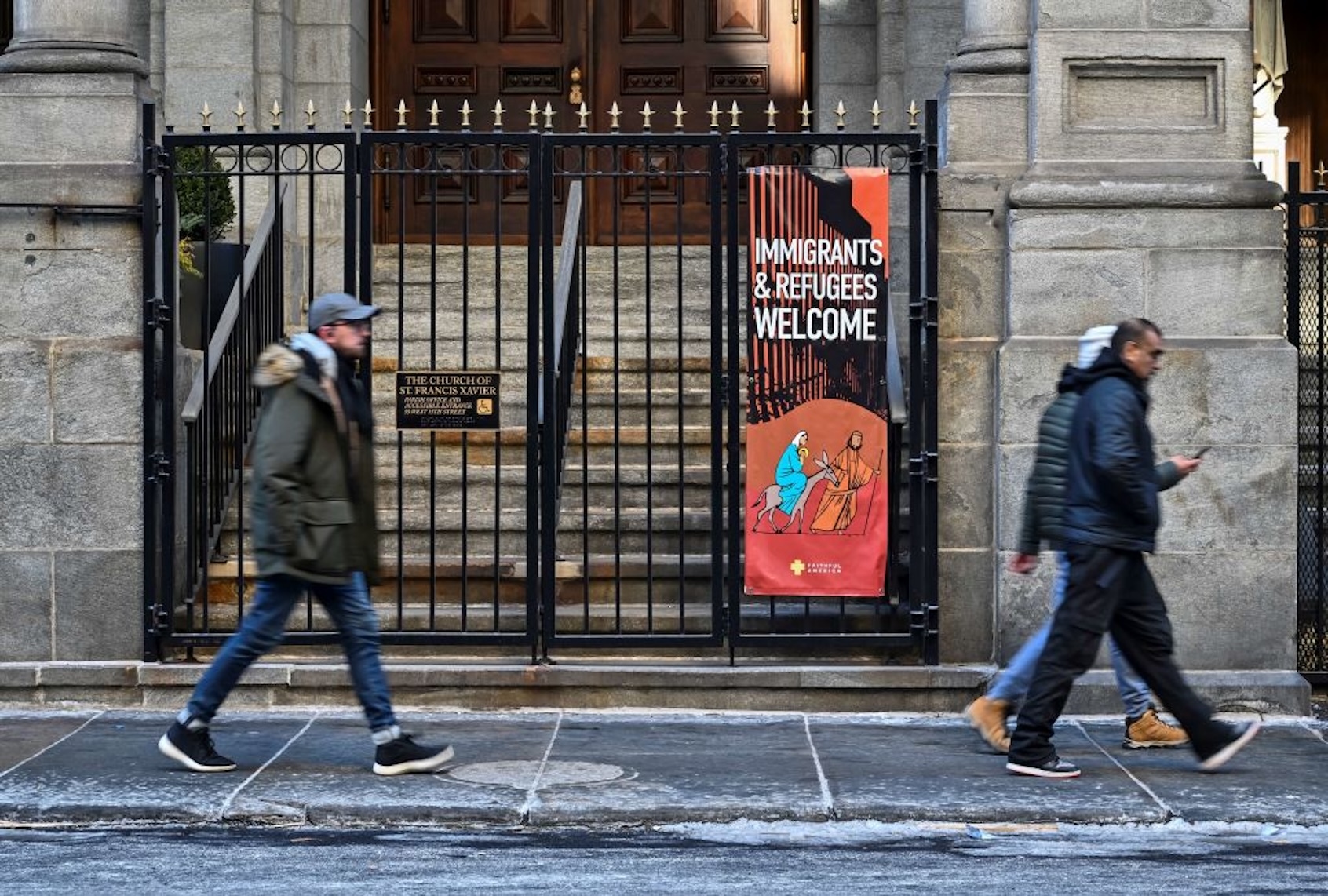Religious liberty? Trump is obstructing freedom of worship

People abducted from church parking lots. Immigration and Customs Enforcement agents shooting pastors while praying. Religious groups terrified to run their soup kitchens. Church pews empty as congregants stay home in fear. This is the country we live in, the America that President Donald Trump has consistently claimed he would transform into a beacon for religious liberty.
That’s a sham. One of us is a legal expert who specializes in religious freedom. The other is a Presbyterian minister and former vice chair of the U.S. Commission on International Religious Freedom. Both of us are gravely concerned about how the Trump administration’s anti-immigrant agenda is undermining our nation’s founding promise of religious liberty.
For more than 30 years, a “sensitive locations” policy has restricted immigration enforcement activities at houses of worship, religious ceremonies, hospitals and schools. But the very day Trump was inaugurated, he revoked that policy — and enabled ICE agents to surveil and arrest people as they worship.
Consider just a few ways the administration’s immigration policies are obstructing free worship. For more than 30 years, a “sensitive locations” policy has restricted immigration enforcement activities at houses of worship, religious ceremonies, hospitals and schools. But the very day Trump was inaugurated, he revoked that policy — and enabled ICE agents to surveil and arrest people as they worship. Now, religious groups are suing the administration for intruding on these sacred spaces.
Immigration agents have also seized people who are seeking asylum because they are escaping religious persecution. And Republican leaders have opened investigations into religious nonprofits that serve migrants — baselessly suggesting that the organizations are only serving them to enrich their own coffers or, even more outrageously, engage in money laundering.
All of these attacks have created a culture of fear that is further crushing religious liberty. Many people of faith are forgoing attending services because they are afraid of being confronted by ICE, even if they have legal status. Slowly but surely, this is weakening fellowship and community bonds — the hallmarks of many religious groups.
We’re hearing firsthand from faith communities and nonprofits seeking guidance on how to remain true to their missions and values — and ensure that their religious rights are protected. Thankfully, faithful Americans of the past and present offer us some answers.
There’s a long and robust history of conflict between anti-immigration policy and people of faith in the United States. A textbook example is the Sanctuary Movement of the 1980s. Rev. John Fife and Quaker rancher Jim Corbett planted the seeds of what would become the Sanctuary Movement when Corbett, who had already been welcoming Central American refugees into his home, challenged Fife to do the same at his church and in the homes of his congregants. The movement spread and included, at its peak, hundreds of congregations of many denominations that aided thousands of refugees and helped pass major legislation.
But the federal government tried to crush the movement through undercover criminal investigations and prosecutions of sanctuary workers. Fortunately, it did not succeed. In the largest criminal trial of the Sanctuary Movement era, eight sanctuary workers were found guilty of charges including “engaging in a conspiracy to smuggle undocumented people into the country.” However, due to overwhelming public support and an extensive, sophisticated network of sanctuary organizers nationwide, the judge handed down shockingly lenient sentences: Five years probation.
Want more sharp takes on politics? Sign up for our free newsletter, Standing Room Only, written by Amanda Marcotte, now also a weekly show on YouTube or wherever you get your podcasts.
The Sanctuary Movement succeeded in part because it was well-organized and widely-distributed, winning the hearts and minds of broad audiences by effectively communicating that the organizers’ faith traditions commanded them to protect refugees.
We are well-equipped to meet today’s moment if we learn from this history. Many groups are already applying these lessons by engaging in protest, preaching, advocacy, direct support and litigation to fight for their immigrant neighbors.
This includes championing our First Amendment right to worship freely. The Trump administration has already signaled that, if left unchecked, it will force the nation to comply with its own narrow religious vision. Trump recently reinstituted a version of his infamous “Muslim ban” and created an “Eradicating Anti-Christian bias” task force aimed at privileging conservative Christianity. If we allow this White House to curtail religious liberties now, we’ll invite even more significant erosion of our rights.
We need people with power and resources to vocally support and materially protect migrants. History shows that defending targeted communities requires us to emphatically reject fear-mongering and to provide the resources they need to stay safe. We need our most visible and respected community members to stand proudly with migrants, offer them support and remind people of their humanity.
Many faith communities are already stepping up. They’re accompanying migrants to their immigration hearings, hosting vigils for people that have been disappeared by ICE and protesting in the streets for immigrant rights.
Finally, we must use the legal system to the best of our ability. The Law, Rights, and Religion Project at Union Theological Seminary recently published a report to support faith-based organizations, houses of worship and civil rights advocates. The document includes a history of immigration-related religious liberty lawsuits and guidance to navigate today’s legal system.
We proudly support the prospect of a nation where everyone can worship freely. Unfortunately, if Trump’s anti-immigrant agenda continues, we’ll never achieve that vision.
Liz Reiner Platt is Director of the Law, Rights & Religion Project at Union Theological Seminary.
Rev. Fred Davie is executive vice president for Public Theology and Civic Engagement at Union Theological Seminary — a globally recognized seminary and graduate school of theology where faith, spirituality and scholarship meet to reimagine the work of justice.
salon





